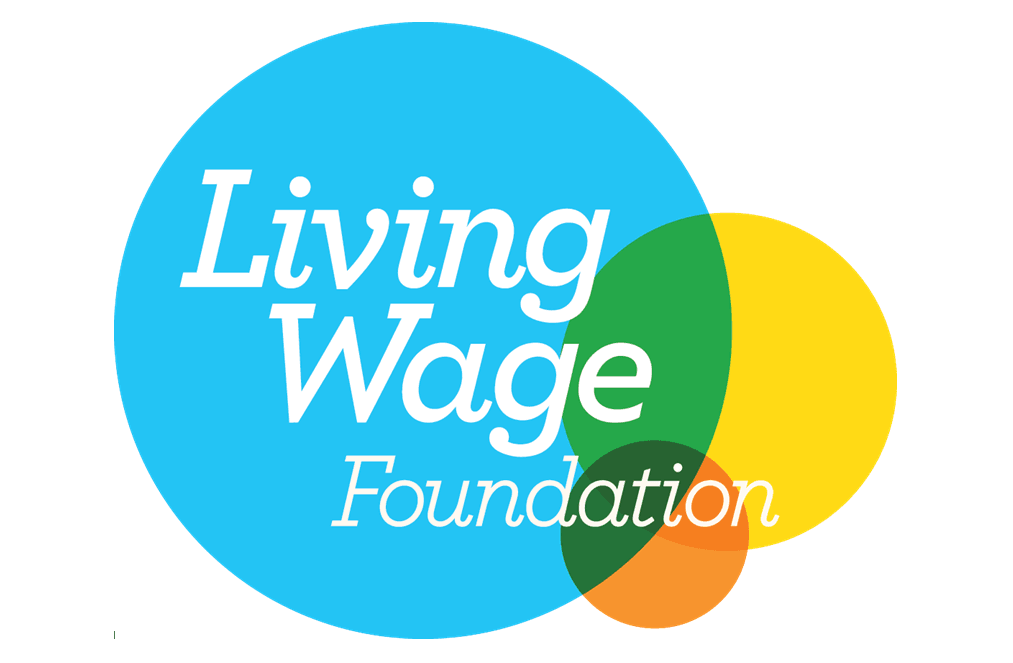
Living Wage Week starts on 9 November when the new real Living Wage rates are announced.
Here at the Trust, we work closely with the Living Wage Foundation because we know being out of work, being in low-paid employment and/or being in the low-pay-no-pay cycle, has a significant long-term negative impact on your health and your wellbeing. This can be not having enough money to buy sufficient food and eat healthily, stress and a lack of control.
People who are unemployed or experiencing low pay are more likely to have physical and mental health issues, as well as decreased self-esteem. [1] and low pay is a m ajor factor in why people in the most disadvantaged neighbourhoods die younger than in most affluent areas (eight years in England and Wales and up to 13 years in Scotland).
Low pay in the third sector is widespread, with women, young people, part time and minority ethnic workers particularly affected. The 2017 ‘Low Pay in the Charity Sector’ report highlighted that a quarter of charity sector workers (26.2%) are not being paid enough to live off as they do not receive the real Living Wage.
In 2015, the Trust helped found the Living Wage Funders scheme to help end low pay in the voluntary and community sector, in recognition that the prevalence of low pay across the charity sector is directly linked to funders and the way we fund. The Living Wage Funders scheme enables funders to support their funded partners to pay the real Living Wage. Through the scheme, funders encourage their funded partners to ‘cost up’ applications to cover the Living Wage, by applying for enough funding to be able to pay staff at the Living Wage rates, express their support of funded partners paying their staff fairly, and support them to become a Living Wage Employer as best practice.
Good Companions in Nottingham, funded through the Trust’s Active Communities programme for its Clifton Friendship Group project is one charity that is benefiting from the Living Wage Funders scheme.
The group supports isolated older people, many with underlying mental health issues, in the Clifton area of Nottingham, enabling them to come together for a mixture of conversation and activities. With the Living Wage uplift, Good Companions pays the Living Wage to the Coordinator of the project.
Clare Ashton, the Chair said “Good Companions is a small charity and we find fundraising a challenge, particularly in the current financial situation. The funding of the Living Wage by People’s Health Trust has enabled us to attract and retain an appropriately qualified and committed individual to take on the role of Co-ordinator of our Clifton Friendship Project.”
The work of charities like Good Companions is crucial in supporting people who are particularly vulnerable during COVID-19. The charity, like many others, had to completely change their way of working when the pandemic hit. Volunteers are in regular phone contact with residents and deliver monthly parcels with quizzes and treats to keep spirits up. They have also set up a WhatsApp group and are starting to run a Friendship group on Zoom but this is challenging due to digital literacy, and now being unable to help people set up the technology face to face.
Clare adds “Maintaining communication is so important, particularly for residents who are quite vulnerable.”
The COVID-19 crisis has of course caused a significant increase in unemployment which will need to be addressed in arecovery planwhich prioritises people and their health. The Living Wage will play an important role in enabling people to have stability and more control over their lives.
In light of the huge impact of the pandemic, the focus of the Living Wage Funders scheme is shifting to building an inclusive third sector following the pandemic and the role of the Living Wage in strategies to tackle socio-economic inequality and build a more sustainable and equitable society.
Get involved
There are online events taking place during Living Wage Week including a focus on rebuilding an inclusive Third Sector (Friday 13 November). To find out more and register for this and other events visit https://www.livingwage.org.uk/living-wage-week-2020-events
